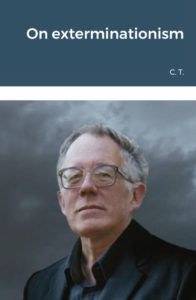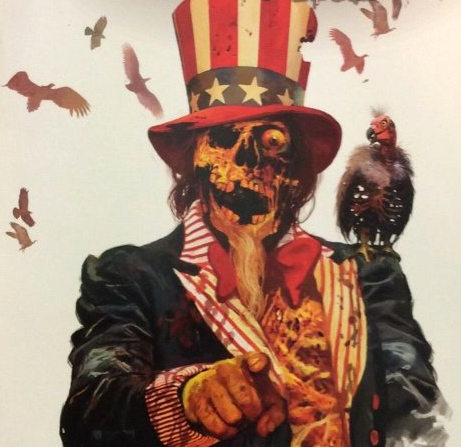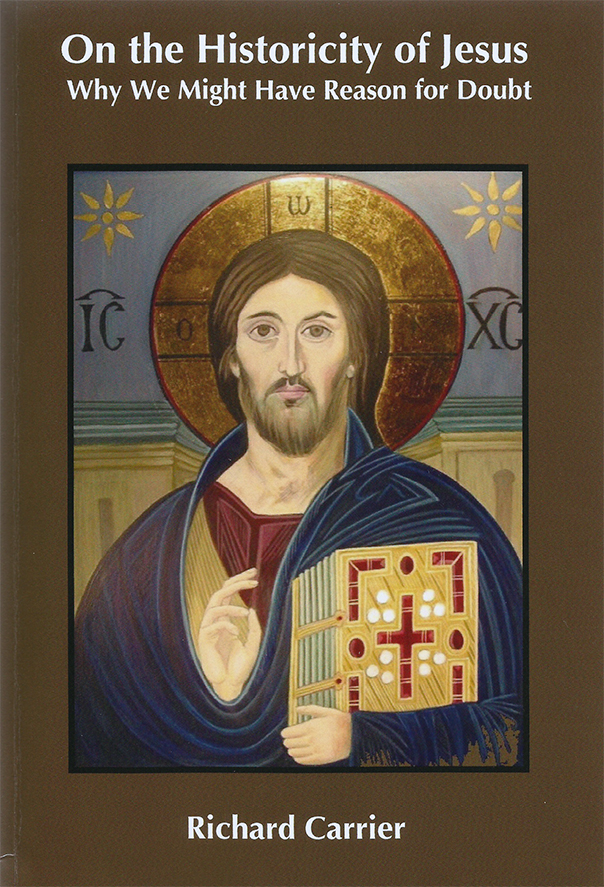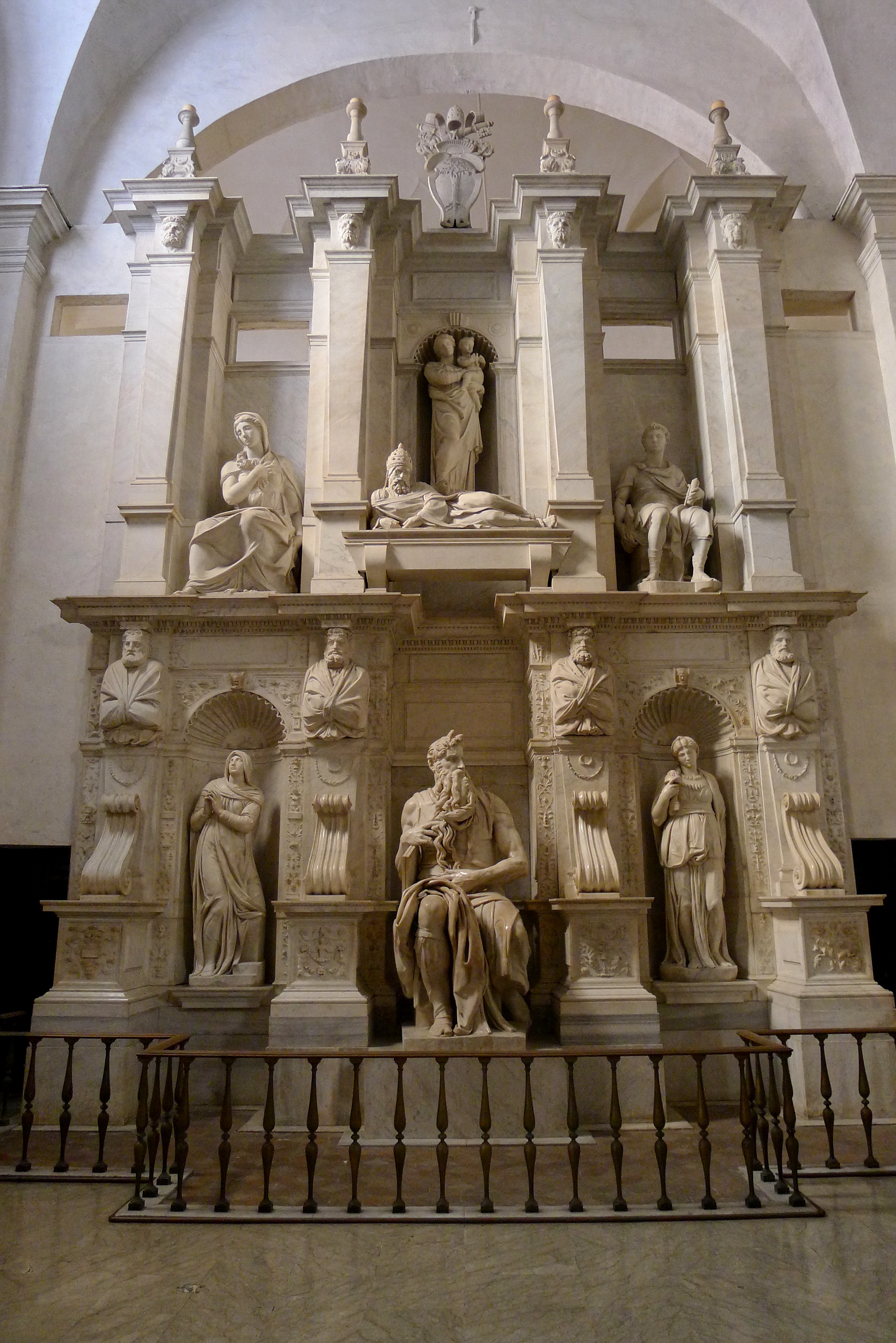Update 12 June. This was the last post I published on the old incarnation of The West’s Darkest Hour, on the same day they axed that site. As I said at midnight, fortunately I had a Word backup, so I can reproduce it again here. I consider the issue of the anti-Christianity of the NS Germans of the last century to be of the utmost importance for the reasons given by Coel Hen in his letter to me yesterday. Behold the last entry on my old site:
Hitler’s Religion: Chapter 5
(excerpts)
by Richard Weikart
Munich town hall
(a painting by Adolf Hitler)
Did Hitler want to destroy the churches?
According to Ernst von Weizsäcker, whom Hitler appointed
ambassador to the Vatican, Heinrich Himmler once told Weizsäcker’s wife, “We shall not rest until we have rooted out Christianity.” The Security Service of Himmler’s SS kept church leaders and organizations under surveillance and continually proposed policies to limit and hinder their activities. The Gestapo arrested hundreds of priests and pastors, some for violating Nazi restrictions or encroachments on the churches, and others on trumped-up charges. Other leading Nazi officials were equally hostile toward the Christian churches. In June 1941, Bormann, who had recently stepped into Hess’s vacated position as leader of the Nazi Party Chancellery and had thus become one of the most powerful officials under Hitler, sent a circular letter to all Nazi Gauleiter about the relationship between National Socialism and Christianity. Therein he asserted, “National Socialist and Christian views are irreconcilable. The Christian churches are based on people’s ignorance… on the other hand, National Socialism builds on a scientific foundation.” Goebbels and Rosenberg wholeheartedly agreed with Bormann and Himmler and hoped to hasten the demise of the Christian churches. Prosecutors at the Nuremberg Trials stressed the intense antagonism of the Nazi regime toward the churches, which was a common perception in the Anglo-American world at the time. And many historians, such as John Conway in The Nazi Persecution of the Churches, 1933-45, provide abundant evidence of the Nazi regime’s anti-Christian character…
The question then emerges whether Hitler wanted to destroy the churches, hoped the churches would continue to exist after accepting Nazi dominion and ideology, or was he indifferent about their continued existence?…
When he reflected back on his religious upbringing, he claimed that he hated Christianity from his youth. Once he became a politician, however, his desire to see the end of Christianity was tempered by a realistic acknowledgement that the religion was too deeply rooted in the German people’s psyche and emotions simply to abolish it immediately. Even when Hitler privately uttered his most vicious threats against the churches during World War II, he often indicated that the destruction of the churches would not be a quick and easy project.
In sum, Hitler did want to destroy the churches, but for him, it was a long-term goal that required time and patience. He hoped to accomplish it by gradually increasing restrictions on the churches and, more importantly, wresting the education and training of the youth away from them. Undermining the churches was also subsidiary to many of Hitler’s more important goals, such as eliminating the Jews, crushing communism, building German unity, and expanding Germany’s borders.
Some of Hitler’s close colleagues understood his ambivalent position. His press chief, Otto Dietrich, explained that Hitler’s restraint toward religious groups was a political move. In order not to alienate supporters, he sometimes endured attacks from church circles, although he often privately threatened future vengeance against them. Further, Dietrich noted that Hitler’s private invective against the churches encouraged Himmler, Bormann, and other anticlericals in his party to attack the churches. Weizsäcker took a similar view of Hitler’s position toward the churches. While the official Nazi platform supported “positive Christianity,” Weizsäcker explained,
In practice, things were very different. Hitler himself took care not to attack the Churches openly. But he had from his youth been an enemy of the Church; and without his tacit agreement the rigorous measures that were taken would hardly have been possible. An acquaintance of mine heard him say that in one or two generations the Christian churches would die out of their own accord.
For Hitler, the church question was not a peripheral subject; it was a major topic of conversation. The theme came up repeatedly in his private conversations with Goebbels, Rosenberg, and other officials; in private speeches to party officials; in talks with his secretaries; and in his monologues. In July 1941, he told his entourage, “In the long run National Socialism and the churches cannot exist side by side.” When one of his secretaries asked if that meant he was going to launch a new war against the churches, Hitler responded, “No, that does not mean a war; the ideal solution is to do away with the churches by allowing them to shrivel away by themselves gradually and without violence.” Indeed, Hitler’s desire to destroy the churches through a gradual, nonconfrontational approach often brought him into conflict with more zealous anticlerical Nazi officials, who favored more drastic measures against the churches. Because of this, Hitler sometimes served as a moderating influence on anti-church policies. Nonetheless, his ultimate goal was the eradication of the churches, even if he was more patient than some of his comrades.
Before coming to power in 1933, Hitler recognized that an anti- Christian platform would be political suicide, so he consistently portrayed himself in public as supportive of Christianity and the churches. Even so, he was unable to cover up completely the animus toward Christianity that percolated through his party…
Many of Hitler’s most vociferous professions of support for Christianity occurred in speeches where he was overtly countering charges that he was anti-Christian… Still, Hitler had difficulty playing his juggling act between the churches and the anticlerical forces in his party, because anticlerical Nazis such as Rosenberg—who edited the official Nazi newspaper—often alienated Christians…
By early 1937, the Vatican had sent seventy diplomatic protests to the Nazi regime concerning violations to the Concordat. Pope Pius XI was fed up with the constant infractions and finally decided to publicly rebuke the Nazi regime for its continuous transgressions of the Concordat…
Less than two months after Pius issued his encyclical, Hitler held a long discussion about the church question with his Nazi colleagues. He told his comrades, “We must humble the church and make it our servant.” He then suggested several means to accomplish this: (1) ban celibacy, (2) confiscate church property, (3) forbid the study of theology before age twenty-four, (4) dissolve monastic orders, and (5) remove the right to educate from the churches. Once these were implemented, Hitler continued, the churches would decline within a few decades to the point that they “will eat out of our hands.” Soon thereafter, according to Goebbels, Hitler was seriously contemplating the separation of church and state, which he had threatened earlier and which would have been a major financial blow to the churches.
Though Hitler did not take these drastic measures, he did ramp up his persecution of the Catholic clergy and considered ending the Concordat…
While Hitler told his fellow Nazis that he did not want to take strong actions against the church during the war, his secretary testified to a friend—and Goebbels’ diaries made clear—that Hitler always reminded the Nazis this was merely a temporary expedient. After the war, he promised, he would reckon with the churches…
From 1940 to 1942, about three hundred monasteries and church institutions were closed, and the German army took over many church hospitals…
Many other clergy were harassed or imprisoned by Nazi authorities. One example was a Catholic priest in Berlin, Bernhard Lichtenberg, arrested on October 23, 1941, for praying for Jews and for those in concentration camps. Under interrogation, Lichtenberg boldly outlined multiple complaints against the Nazi government, including their elimination of religious instruction from schools, the attempt to remove the crucifix from schools, the killing of disabled people, and the persecution of Jews. He stated, “National Socialist ideology is incompatible with the teaching and commands of the Catholic Church.” After serving his two-year sentence, he was rearrested (just as Niemöller had been earlier) and died in November 1943 while awaiting transfer to Dachau.
However, while allowing and even encouraging the imprisonment of many clergy, Hitler was more cautious in dealing with bishops. Hitler was furious when Catholic Bishop Clemens August Graf von Galen spoke out boldly in public sermons in July and August 1941 against the Nazi confiscations of monasteries and against the Nazi program of killing disabled people. Though some Nazi officials wanted Galen executed, Hitler demurred, arguing that arresting Galen would damage the war effort. He advised delay…
In September 1941, he had joked that he would cure the bishops’ “headaches” by taking their heads off…
Another indication of his hostility toward the churches was his treatment of newly annexed and occupied territories from 1938 to the end of the war. When Hitler annexed Austria… the Nazi regime began shutting down Catholic organizations, schools, monasteries, and in 1939 even abolished the church tax. As Hitler expanded into Czechoslovakia and Poland in 1938-39, he likewise refused to apply the Concordat, even to the territories directly annexed to the German Reich. Hitler also denied the Vatican any authority over the Catholic Church in annexed or occupied territories…
In occupied territories with non-German populations, however, Hitler did not care if the people continued practicing their religion, as long as it did not foment any anti-German sentiments. However, he did want to eliminate any Polish leaders who might oppose Nazi rule, and this included the Catholic clergy. Before opening the Polish campaign on September 1, 1939, Heydrich organized SS commando squads who swept into Poland behind the regular army and murdered Polish intellectuals and leaders. They carried a list with 61,000 names, and by December 1939, they had killed about 50,000 men, including Jews, political figures, and intellectuals, but also many Catholic priests. Quite a few Polish priests were sent to Dachau during the war, too.
To Hitler, it was no issue if the allegedly inferior Poles kept their Catholic faith, as long as they served faithfully as slaves to the “master race.” In a meeting with Bormann, Hitler Youth leader Baldur von Schirach, and Hans Frank, governor of the rump state of Poland known as the General Government, Hitler explained he favored allowing them to continue practicing Catholicism. He continued, “Polish priests will be fed by us, and in turn they will direct their herd in the direction we desire. The priests will be paid by us, and in turn they will preach what we desire. If a priest goes against the grain, then he will be dealt with mercilessly. The priests are to keep the Poles mute and stupid.”
On another occasion, Hitler implied that allowing other countries and peoples to keep their religion was useful, because the churches sapped their strength, which was to Germany’s advantage. In December 1941, he stated, “In any case, we would not desire that the Italians or Spaniards lose their Christianity: whoever has it, has bacilli constantly present.” In that same monologue, Hitler also boasted that he would “march into the Vatican,” expel the Catholic prelates, and then say, “Excuse me, I made a mistake. But then they are gone!” His fait accompli would strike at the very head of the Catholic Church, stripping the German Catholic Church of its international connections.
How serious was Hitler about attacking the Vatican and removing the pope?… What was Hitler planning to do to the churches after the war was over?… The ultimate goal of these policies was the complete elimination of the churches, even if it would take a few years or a few decades. Thus, Hitler was working toward the abolition of the churches with an incremental, not cataclysmic, approach…
A few months later, he derided Christianity as a poison bacillus akin to Bolshevism and suggested, “The struggle with the churches will perhaps last several years or under the circumstances maybe a decade, but it will certainly lead to a radical solution.” One of Hitler’s secretaries thought that if Hitler had won the war, he intended to initiate a vigorous campaign against the churches immediately by withdrawing from the Catholic Church…
“When we are free from Christianity,” he said, “the other peoples [i.e., non-Germans] can keep Christianity.”
We gain another glimpse of Hitler’s prospects for the churches after the war by examining his plans for rebuilding the bombed-out cities of Germany. Actually, Hitler’s scheme to rebuild the cities of Germany began even before the war. In 1938, the Nazi regime demolished St. Matthew’s Church in Munich and replaced it with a parking lot. When the Nazi regime was formulating plans to build several new urban developments, Bormann issued a directive from Hitler in July 1939 that no churches should be built in them, nor should places be reserved for their later construction. They had no place in the new order Hitler was creating.





